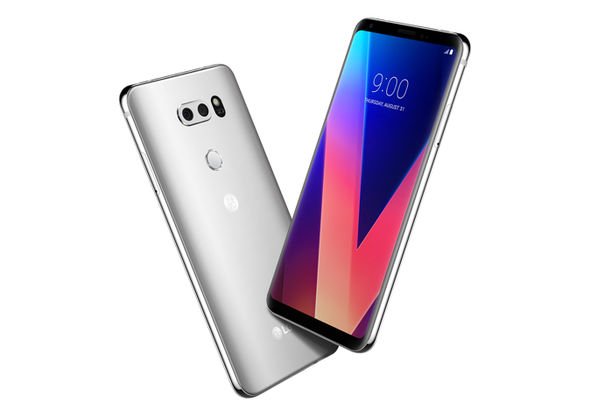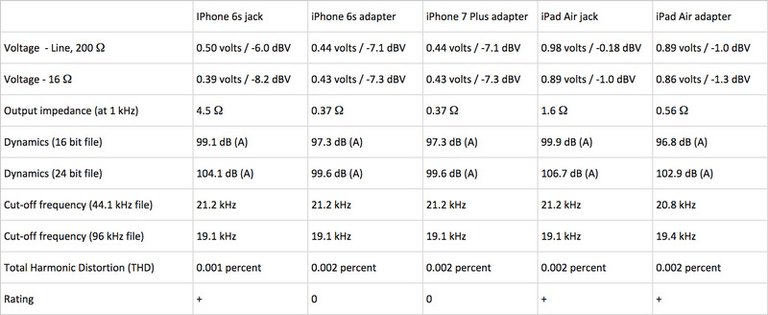
I know it has been a big fuss at the iPhone unveiling but I slept through it. Before you jump the gun, I have to declare that I am a Apple user for the last 20 years, bought my first iPad when it came out and got the first iPhone 3GS when it came out. So for 2017, my most eagerly awaited device was not the iPhone but the LG V30 and let me tell you why. At IFA 2018, I watched the live unveiling, and I wasn't disappointed.
Ever since the Samsung Note started exploding with much fanfare. The Korean crown was lost. But thank God for LG for taking up the slack for building a device I would gladly buy.
For many years, I have been disappointed with the iPhone. Apple thought us to live with less real world features and bait you into their digital ecosystem. The device started to be communist right after Steve Jobs passed on and that hasn't changed.
Apple stopped creating a smartphone that people want to use. In fact, all they did was repackaged older technology into a new form factor and dupe you into thinking it is innovative. Look at the OLED display on the iPhone X, that's not new. Bezel-less display isn't new too as Xiaomi Mi Mix beat Apple to it. Dual cameras? Big deal....
What about the headphone jack? Taking it away wasn't an innovation, it was another way to bait you into buy their Beats wireless headphones and those awful Airpods, which has antennas sticking out from the bottom to tell other people you want to look silly and hip.
I am sorry but the iPhone 8 doesn't cut it for me one bit.
The problem with the real world connectivity is lost to many who use iPhones and this shows up pretty glaringly.
When I first got the LG V20, it was a relief that I could leave that Samsung and Apple created mess behind. Samsung tried to be Apple by trying to make you buy into a unique ecosystem with a load of bloatware. Who gives a damn about Samsung Pay or Apple Pay? I certainly don't. Why wouldn't Apple give developers access to its NFC so that other more meaningful connectivity could be created? They kept it to themselves just like any device Nazi would.

Apple wants you to double down on those wireless Airpods that cost a bomb to own just to look cool. I sure as hell don't want them because the sound quality is far from decent. But for the drug induced Apple fanatic, it won't make a difference coz what they don't know about the outside world won't hurt them...it's like living in North Korea and loving it.
For audiophiles, the iPhone 7 and 8 isn't going to cut it. Trusted they have reinvented the digital music with a new DAC embedded in the new Lightning Port jack. This tiny DAC, which gives audiophiles the high they seek when listening to music is what makes it so great. Unfortunately, in the iPhone 8, where the 3.5mm no longer resides, there is no need for a quality DAC as music is now played through the iPhone's speakers.
Technically speaking, Bluetooth audio can never compare to the quality of audio you get from a wired source, this has to do with the DAC, or digial analogue converter, which most of you are wondering about. This is where the problem lies with good audio. Bluetooth devices, be it the wireless earphone buds or the bluetooth headsets come in a wide variety of electronics which may or may not measure up. A good DAC is hard to come by for decent sound reproduction and you may spend a small fortune to get a wireless headset that can perform up to spec. What is a good DAC? The LG V20 has a 24-bit DAC. The new V30 has a 32-bit DAC.

Now leave it to the Germans for a proper test. They have concluded that the new iPhone Lightning port adapter isn't bad, but it just isn't as good as the iPhone 6.
So let's not nit pick on the numbers but agree that the removal of the well loved headphone jack was a commercial decision by Tim Cook to force users to ante up on some head or ear wear.
So if you have a problem with this, why not switch to an Android device?
The device that comes to mind is none other than the LG V20, a much under rated phone that was built for audiophiles. Now how did I know this?
In any modern recording studio, where they have to record and save analogue sound into a digital format, the preferred choice is to use a 32 bit DAC to do the job. This means the files that you get from it is the closest thing to the original.

WTF is a 24 bit DAC?
In photography, many speak of RAW files but RAW has to be compressed into a readable format for storage. This is how picture formats such as DNG and TIFF comes in. For the audio world, there are namely two (three if you want to count Apples' take on raw audio). Ogg and FLAC are the most common and these are the DNG files of the audio world. Apple has its own version called ALAC, which is the only RAW audio file format that iTunes could read if you ever dropped one into the program. Audio files in FLAC are lossy format which is least compressed compared to MP3s. So if you want to know the difference, just remember that MP3s are just like JPG file formats where it can be compressed in a number of ways to make the file smaller while FLAC are the DNG files of the photography world.
The LG V20 will give you the highest audio quality, for playback and recording. The device will playback files saved in FLAC natively without you having to convert it. For studio musicians, you'd also be overjoyed to know that the V20 has three microphones built in for 'live' recordings. This also means you can sample sounds with this same device for playback on a sampling keyboard or computer.
If you wanted to compare, MP3s would be blended whisky, while FLAC will be single malt from the highlands of Scotland. But to truly enjoy this, you can't have it in a dirty glass.
This is the inherent problem with encoded audio files, for as long as you have a poor set of earphones or headphones, you can never tell if one is better than the other. I have several poor quality headphones and by that, you can't tell if you are listening to any type of audio file. They all sound the same.
I remember the first generation earphones that came with the iPhone 3GS. Those were downright awful. The only reason why people wanted to wear them at that time was to show off those white earbuds to tell people they had an iPhone.
Thanks to technology, a good set of earphones or headphones do not cost a lot. Be prepared to part with between 50 to 90 dollars USD for either a over-the-ear or on-ear headphone.

Here is a tip on selecting a headphone with the best frequency response.The problem lies in the headphones or earphones with less than decent audio dynamics. I know some people are pretty happy eating hamburgers from McDonalds as oppose to trying something more gourmet and this will probably be the class of people I would not be preaching to. Why waste time if you are happy with what you have been feeding yourself all this while...right?
Normal headphones have a frequency response of between 20 Hz to 20 kHz. Those with better audio dynamics like the Pioneer HDJ-5 have Frequency responses from 5 Hz to 30 kHz as the top end of 20 kHz is suppose to be the highest the human ear. There are some headphones that have from 5Hz to 40kHz and those are top notch devices. So if you want a better quality headphone, just read the Frequence Response data found on the box. Anything that says below 10Hz and above 20 kHz frequency response would be decent. Those performing at 5Hz to above 30kHz will be excellent.
The lower notes, of between 5 Hz and 10 Hz is what gives the richer sounds in music. So when you are listening to a FLAC file, you will hear a richer bass, notes will be full bodied and you will hear more depth in the music with such headphones.
For the V20, the music was much richer than what I would hear on my older Galaxy Note 4, so unless you are willing to jump in yourself and swim in the sea of sounds, and the sound capability of an Apple device...would be pure nonsense to an audiophile. The LG V30 does this even better with a quad deck 32-bit DAC.
The only caveat with high quality audio is the files. A normal FLAC file can be as much as 50MB per file. So an album in high quality audio will cost you a far bit in storage. For Android users, the external SD card can be used between 128 to 256 GB as a storage supplement. Apple just wants you to pay the price for having more RAM.

There are two iterations of how a dual camera system can work. One variety like the ones used in the Huawei P10 is a B/W lens paired with a color one for detecting differences in light and contrast. The other is what LG has been creating, one standard 28mm equivalent lens and the other a super wide angle of 18mm (in 35mm speak).
Wide angles are a fav of mine, since I shoot in the city more than in the outbacks of mother nature, the 18mm packs more into a picture frame.
Both the V20 and V30 uses these same field of view, which is a blessing for those who yearn for wide angle but can't seem to get it on the iPhone.
Autofocus on the iPhone is a hit or miss affair. You need to focus lock on an object to keep it on focus. The technology behind phase detection isn't fool proof and laser detection also has its limits with shiny or reflective surfaces. To overcome these limitations, both the LG V20 and V30 uses Laser and Phase detection technologies instead of the iPhone's phase detection only autofocus system. Needless to say, it is a dual focus systems that will eventually win the day.
So the benefits in real world shooting is this, if the scene is proving difficult to focus continually, the LG has a fall back on either laser or phase detection systems.
Both the iPhone X and LG V30 uses glass lenses for their cameras but the LG V30 has an aperture of f/1.6 as opposed to the iPhone's f/1.8. This alone is more than enough to prove where my money is going this September.
Congratulations @techtribe! You have completed some achievement on Steemit and have been rewarded with new badge(s) :
Click on any badge to view your own Board of Honor on SteemitBoard.
For more information about SteemitBoard, click here
If you no longer want to receive notifications, reply to this comment with the word
STOP